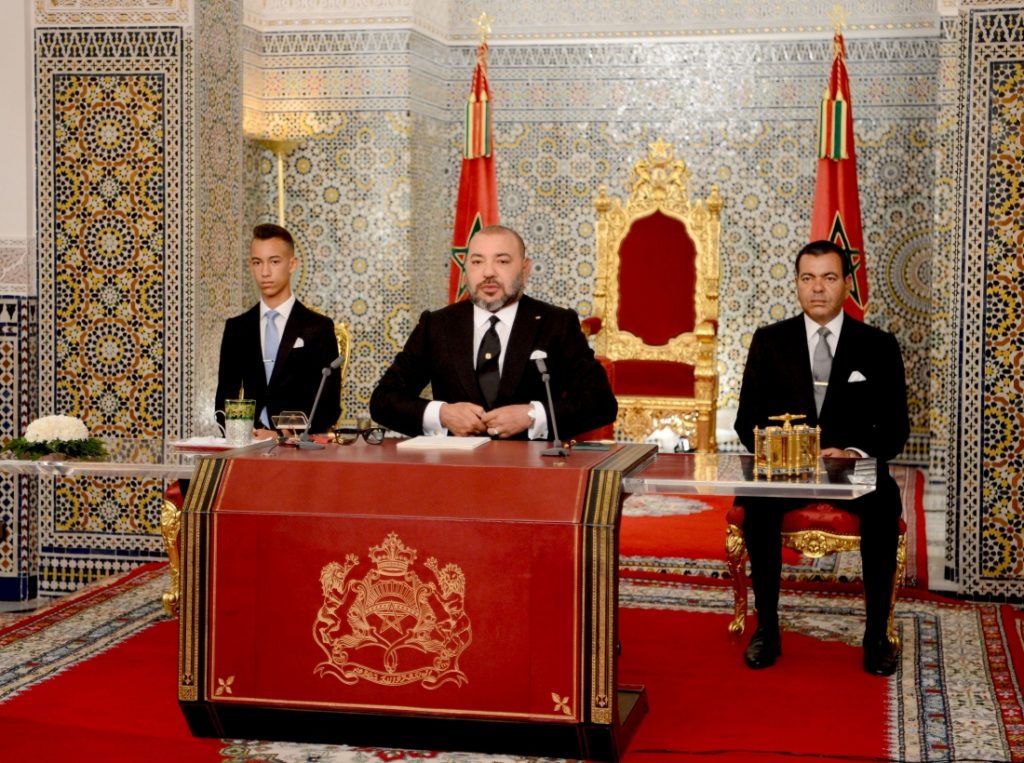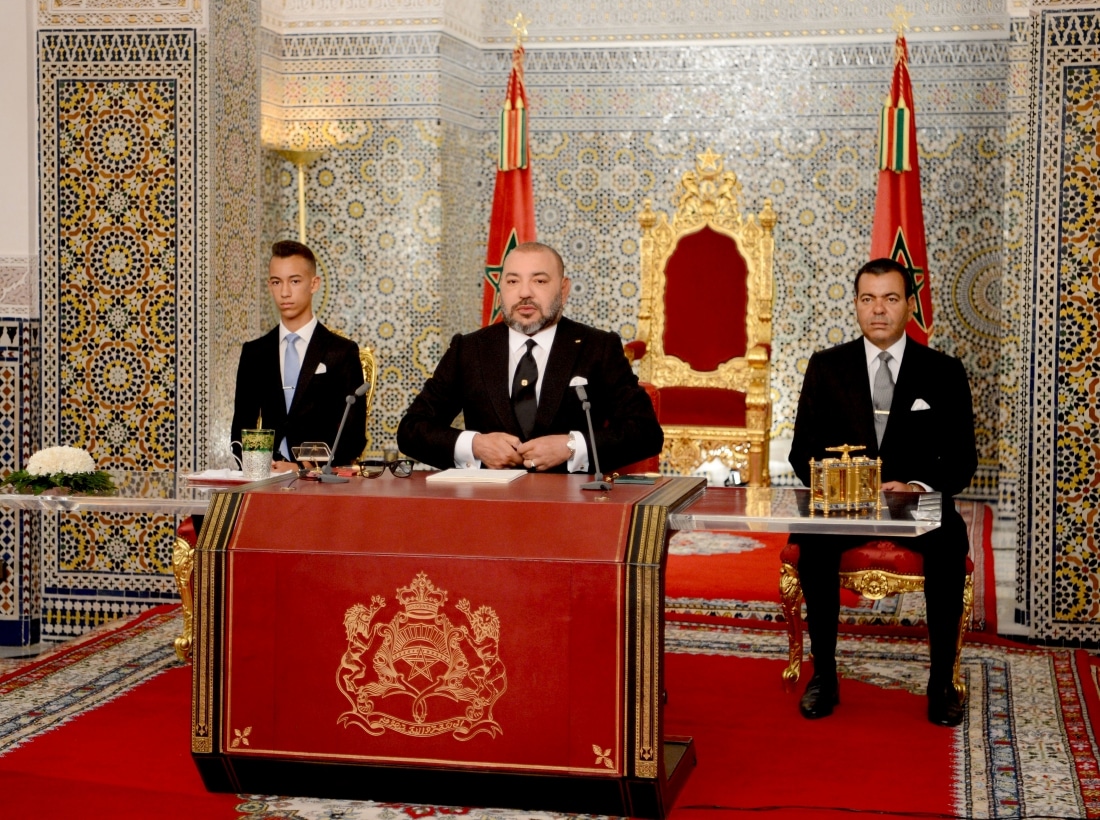King Mohammed VI addressed the nation on the occasion of the Feast of the Throne. He describes an executive and elected officials motivated by their personal interests and promises sanctions against those accused of treason. But it is at the heart of the reasoning on the separation of powers that the sovereign evokes that the contradiction is total.

It must have been a discourse of rupture, the promise of a visionary elevation sharp with the wearisome posture of the whistleblower of the defects of the administration and the incivism of panting officials and politicians who take advantage of the system to the bone.
If the King’s words fly in many ways, the paradox is that they come from him as an arbiter while the game is biased at the base. This logic is actually untenable. The omnipotent Palace makes and defeats the power scene as it sees fit, knights certain elites to make it its loyalists, laminates its opponents and decides only the course to take. The political pharmacies denounced by the king are only the product of this reality.
How can we demand in these circumstances the accountability of those who are so often fed, fostered, encouraged, protected and sanctuated by the Palais, when the sharing of institutional powers does not exist in the facts and the spirit Of the Constitution is systematically misled?[ads1]The Hirak, at the center of the news and revealing a deep popular distrust of the political theater and its actors, is explained only by the lack of commitment of incompetent and indelicate officials and populist and vicious politicians. However, the question of their responsibility evokes the more serious question of the mechanisms that brought them to the country’s hands.
The demarcation which the royal institution wishes to trace with this collective failure suffers from a contradiction consubstantial with the very nature of power. If the king tells the truth about the state of bad governance of the nation, he takes the people to witness to defend the factions of his own regime, those whose impunity is hitherto guaranteed by the shadow of his parasol.
Mohammed VI said: “I emphasize the need for the strict application of the provisions of Article 1, paragraph 2, of the Constitution, which establishes a correlation between responsibility and accountability”.
“The time has come to make this principle fully operational,” he added.
But before establishing this correlation, this paragraph says above all that “the constitutional regime of the kingdom is founded on the separation, balance and collaboration of powers.” And it is this very first necessity which conditions the one which follows. Without it, all the rest is vain, despite the string of discourse of firmness against opportunism, irresponsibility and the laxity of ministries and elected officials.
The Rifan social movement and others before it, like that of 20-February, are the expression of the absence of institutionalized counter-powers. That is why their most basic demands end up exploding in the street. It is not enough to declare that the administration must be in the service of the citizens if it is never accountable in the face of a justice which is anything but independent, or to those elected only by dubbing through the purchase of souls Propelled to the status of representatives of the people.
Mohammed VI acknowledges that “the Moroccan institutional model … has largely remained a dead letter, as the field application remains insufficient”. How can it be otherwise when the prerogatives of the government are cropped by the Palace and the advanced regionalization promised for ten years is broken down? Is it not understandable under such circumstances to see the citizen defer to the “king savior” to seek redress or to find that the elected officials and the highest officials of the state enthroned behind the Palace and impute to him Accountability in times of crisis?
“I am fully and firmly committed to respecting the powers of the institutions and the principle of separation of powers,” he said, but at the same time he freed the security corps from any responsibility in the management of Rif events. Is it not up to the courts and the intermediary bodies to make a statement of it in all neutrality, as it is in a democracy, especially since investigations have been promised in the face of suspicions of repeated violations of human rights. Human rights and the dignity of citizens? Whether or not there are differentiated visions within state security bodies is not the problem, it is ultimately their control.
We then come back to the essentials. In order for the monarchy not to be alone in the front line against gusts, it must not be alone in deciding the future of the community. This principle is the foundation of democracy. Any other road crossing will only lead to confrontation and disaster.

